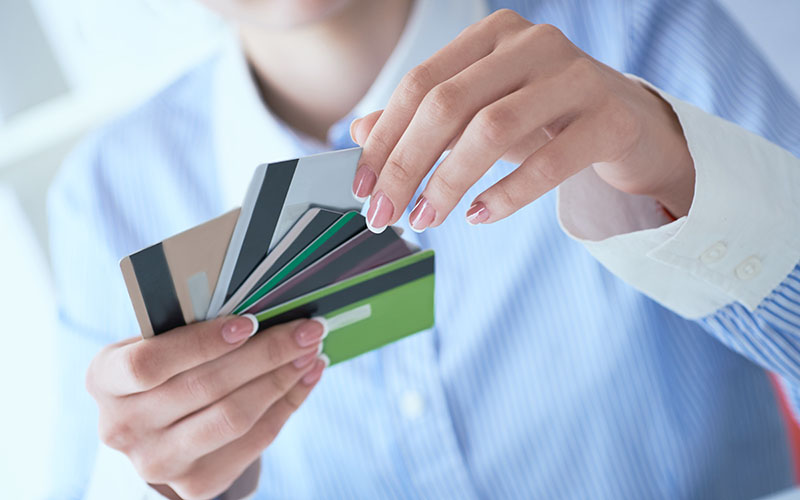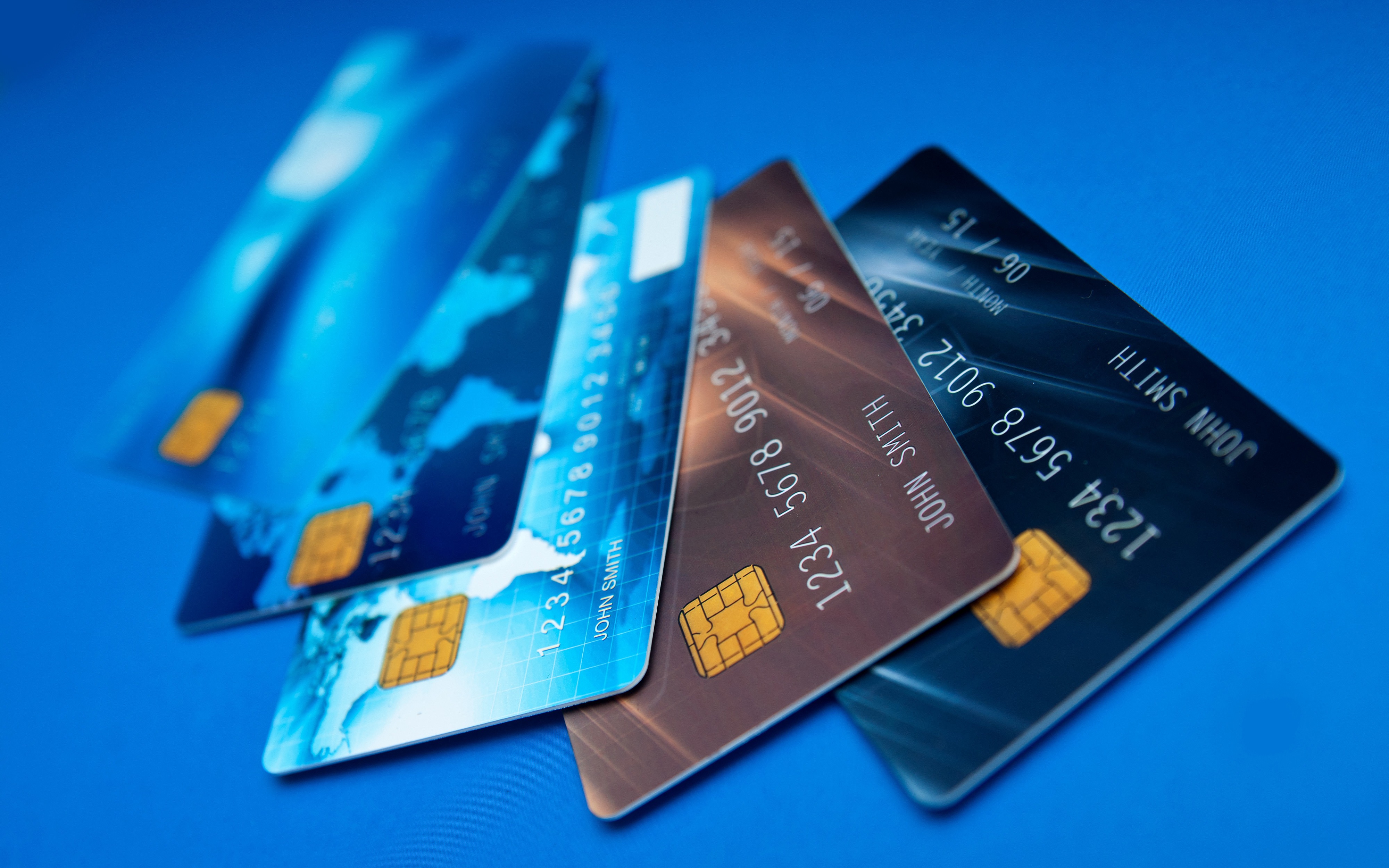How Prepaid Cards Work

A prepaid card can be a useful alternative to credit cards and bank accounts that can be used for payments. Below, we break down everything you need to know about prepaid cards, including what it does and how to find the best one for you.
What It Is
A prepaid debit card is a type of banking card that allows you to spend the funds loaded onto the card.
Prepaid cards -- also called pay-as-you-go-cards or general-purpose reloadable prepaid cards -- are issued by a financial institution or a bank holding company and are branded by a major payment network such as American Express, Discover, MasterCard, or Visa.
A prepaid card can be used for purchases (car rentals, airline bookings, and more) in the same way as a credit card or debit card, but without any added interest or the connection to your bank account.
Most of these cards won't let you spend more than what you load, so you don't have to worry about any overdraft fees.
Prepaid Card Vs. Credit Card Vs. Debit Card
Prepaid cards are similar to credit and debit cards, but there are a few key differences:
Prepaid Card:
- Pay before you use
- Carry a brand of a card network (such as American Express, Discover, MasterCard, or Visa) and can be used anywhere the brand is accepted
- Reloadable
- Only the money deposited onto it can be spent
- Access cash at ATMs
- Protections and disclosures depend on the type of prepaid card
- No periodic statement
Credit card:
- Pay the money back later
- Must be paid back
- Interest is added for the unpaid balance
- Issuers must disclose APRs, rates, fees, transaction charges, and periodic balance
- Must notify borrowers 45 days in advance of making any term changes
- Can't increase APR or fees within the first year of the account being opened
Debit card:
- Issued by your bank
- Linked to your bank account
- Funds are debited immediately from your checking account when the card is used
- Limited protections in transactions or disputes
- Banks must disclose fees
- Banks must provide a statement in the monthly cycle (or quarterly if there were no transactions)
- Must provide 21 days notice before making any changes to fees or liability limits for unauthorized transactions
- No APR requirements
When A Prepaid Card Can Help
There are certain occasions in which a prepaid card can be useful:
- A prepaid card is a great solution for individuals who don't have a credit card or bank account. Prepaid cards have a routing number and account number, so checks can be deposited to the prepaid card account.
- You want to avoid potential credit card debt and overdraft fees.
- You have bad credit or a bad history with ChexSystems and can't qualify for other ways to spend (credit cards, debit cards, checking accounts, etc).
- It's a safe way to introduce individuals who are new to finances to learn or practice how to manage money responsibly.
- A prepaid card can help manage and control your spending.
- You want to give a prepaid card as a gift.
- You want to help your child learn how to manage their finances responsibly.
How To Pick A Prepaid Card
Due to its rising popularity, prepaid cards now come with all sorts of features, rewards, and fees.
Because you have so many options, you can look at each of the features to decide on the right card for you. Many of these come with fees, but the benefits outweigh the cost. Some of the features offered include:
- A card that offers cash back and rewards.
- Cards with additional features such as a savings feature, roadside assistance, online bill pay, setting up recurring payments, the ability to write checks, copies of the card for family members, and direct deposit for your paychecks.
- Cards that allow you to conduct banking online or through a mobile device.
- Cards with sub-accounts that allow you to share the account with your partner or children.
-
- A card that is easy to reload, either online, in person at a retailer, or through direct deposit.
- A card with low or no ATM fees (if you're planning on using an in-network ATM).
- Transparency regarding all fees.
- Overdraft coverage (in case your card issuer lets you use your card with inadequate funds).
- Consumer protections: Because there are no federal laws or regulations to protect consumers who use prepaid cards (unlike credit cards and debit cards, which do have laws to protect consumers), finding a card with consumer protection is important. Thankfully, there are prepaid cards that do offer specific policies and protections for individuals: * Register the card with a card issuer to receive a replacement of lost or stolen funds * Zero liability of a $50 limit for unauthorized transactions * A dispute resolution process that requires your card issuer to investigate and respond to any errors you report and credit the disputed amount until a decision is reached. * Free online access or a monthly statement to view your transactions, account balance, and fees * FDIC or NCUSIF insurance or protection against the loss of your balance due to your financial institution
Where To Get A Prepaid Card
You can shop for a prepaid card at a variety of places:
- Online at the card issuer's website
- At a retailer (such as Walmart or CVS)
- At a local branch (such as a bank like Chase)
How It Works

When you have your card, you can do the following to use your card to its full potential:
- Load the card through a retailer, account transfer, cash reload, mobile check deposit, or direct deposit.
- Use your card to make purchases in the same way you would use your credit card or debit card -- in-store or online. You can either choose "credit" or "debit" on a PIN pad, which really just determines how your payment will be processed. If you created a PIN when you initially received your card, you can use "debit"; if not, you can choose "credit" and use your signature.
- Reload your card once the balance is low. You can add money in a variety of ways: * Mobile check direct deposits * Online transfers through a financial institution, bank, or Paypal * Loading cash at participating retailers * Depositing checks at ATMs
- Get a new card reissued once it has expired. (Funds on the cards don't expire and can be carried over to the new card.)
Types Of Prepaid Cards
There are multiple types of prepaid ones, but here are the most common ones:
- Prepaid debit card/general purpose reloadable prepaid card: These cards can be used as long as you reload funds before use. The prepaid card also has an account that you can manage online. These cards can either be open-loop (which means you can use them anywhere) or closed-loop (which can only be used to make purchases from a single company).
- Prepaid gift card: This card is non-reloadable and can be given to anyone 13+ for special occasions. It may be used for a variety of purchases and at a variety of locations (depending on whether it is an open-loop or closed-loop card). If your card is lost or stolen, the issuer can replace it if you have your account number.
- Payroll/government benefit card: Payroll and government benefit cards are provided by the government and businesses to assist unbanked employees and benefits recipients. These open-loop, reloadable cards can be used to pay bills, make purchases, or withdraw funds from an ATM. Government benefit cards allow the card-holder to receive child support, food stamps, unemployment benefits, veteran benefits, Social Security payments, and more. These cards also serve as an alternative to checks and direct deposits into a checking account. Your employer or government agency will have your funds loaded onto your card through a bank or financial institution after negotiating terms and conditions.
- Prepaid transit card: A transit card is a closed-loop, reloaded card that can be used for transit fares. They can be acquired at a public transportation system and loaded online, reload machines, or point-of-sale terminals. Transit cards don't require identity verification and doesn't require the user's personal information to be activated.
- Prepaid travel card: These cards are primarily used for travel reservations and transactions during trips. They can be loaded with money from your country's currency and then converted to the local currency once you are abroad. You may be charged a foreign transaction fee, but you should avoid using Dynamic Currency Conversion offers from local merchants, since this charges a high fee. Depending on the issuer, you may be able to keep a specific exchange rate for your foreign currency by selecting it when you first load funds onto your card, although this means you can't take advantage of fluctuating exchange rates that may work better. Prepaid travel cards are usually part of a credit card network and can be used wherever the brand is accepted. However, you may also come across merchants who will not accept your card. You will receive a PIN to protect your card during transactions. If your card is lost or stolen, contact your issuer immediately to get a replacement (which may be free or carry a fee) and have the funds transferred.
- Health savings account card: You may be able to receive benefits through a reloadable prepaid card if your employer offers a health savings account (HSA) (also known as a flexible spending account -- FSA). This allows you to set aside a portion of your salary to pay for eligible medical expenses, which is tax-free, and have these funds transferred to your card. Any individual can contribute to your HSA at any time until it reaches its annual limit. At this point, you can choose to earn interest or even withdraw money from your HSA card at an ATM. Your HSA card can be used at doctor's offices, pharmacies, and ATMs within the card network.
- Prepaid student ID card: Many universities offer reloadable prepaid student ID cards that allow students to link their bank accounts to the card, which can be used for a variety of purposes.
- Prepaid incentive card: These cards are generally provided by businesses as a reward for their employees, although it can be given to clients, vendors, and others for recognition or rewards.
- Prepaid insurance card: Insurance companies may offer prepaid insurance cards for their commercial clients, which are generally used to pay for casualty insurance, property, and worker's compensation claims.
- Prepaid business card: Business may give a prepaid business card to their employers, contractors, or venders as an alternative to corporate credit or debit cards, and can be used for business expenses (such as travel, equipment, etc).
The Cost
Many of these cards come with fees, so be sure to read all the terms and conditions for any hidden fees since prepaid cards aren't required by law to disclose that information up front.
- Activation fees: This fee may be implemented when you initially purchase and load your prepaid card and usually ranges from $0 to $30. Most cards don't charge an activation fee but some services that charge high monthly or transaction fees to make up for it.
- Reload fee: This fee may be charged each time you reload your card and range from $0 to $5. It may depend on the amount you add or the source of the funds (like whether or not you are loading your money from a bank account or credit card). Card issuers may waive the fee if you use a certain form of payment or load a specific amount. (Note: Retailers or third parties may charge a fee if they allow in-person card reloads.)
- Maintenance fee: Prepaid cards may charge a monthly maintenance fee (usually less than $10/month), but many of the cards that charge a maintenance fee will waive or reduce it if you reload your card through direct deposit or reload a specific amount. If you only plan to use it sparingly, then a card with a required monthly fee is probably not the way you want to go. Instead, you can opt for a card that has a low fee charged for each purchase.
- Transaction fee: Some prepaid cards may charge a small per-transaction fee $0.49 to $2) for debit transactions, credit transactions, or both. These cards are ideal for cardholders who don't spend often. (Note: You shouldn't have to pay both a monthly fee and transaction fee. If there is a purchase transaction fee, find a card that caps the amount.)
- Declined transaction fee: Insufficient funds during a transaction may be declined and result in a fee. (Note: Some cards offer overdraft protection.)
- ATM fee: Nearly all prepaid card issuers charge a small fee (around $1 to $3) for withdrawing cash from an ATM that is out-of-network. The ATM operator may also charge a small fee for out-of-network cards, which you can avoid by opting for a card that allows in-network ATM withdrawals. If your card has ATM fees, choose a card that allows you to get cash back at grocery stores or other retail outlets without a fee.
- ATM balance inquiry fee: Some cards may charge a small fee of 49¢ to $2 is charged if you check your balance at an ATM, but there are plenty of prepaid card options that allow either online or in-network ATM balance inquiries.
- Bill-pay fee: If you are planning to pay your bills online, opt for a card that charges a low (or no) bill payment fee.
- Transfer fee: Some cards charge a small fee to transfer funds to another cardholder.
- Foreign transaction fee and currency conversion fee: Many cards charge a foreign transaction and currency conversion fee when you use your card outside of the US. Unless you plan on using your card outside the US, this fee shouldn't matter, but frequent travelers may want to find a prepaid card with low transaction and conversion fees.
- Inactivity fee: You may be charged a fee for not using your card for a long period of time (3+ months).
- Mailed statement fee: Card issuers may charge you a small fee to mail you a paper statement but you can opt out of this by checking your balance and account history online.
- Customer service fee: Avoid cards that charge a fee in order to talk to a customer service representative.
- Replacement fee: This fee is charged in the case your card is lost or stolen.
- Account closing fee: You may be charged for closing an account.
Prepaid Card Pros
- Prepaid cards are available for consumers with poor credit or negative banking history.
- A credit check isn't needed for a prepaid card so you can avoid an inquiry that can damage your credit.
- Prepaid cards are a great option for budgeting or for individuals who either don't have a bank account or simply can't qualify for one.
- Some prepaid accounts offer a way to build your savings by using subaccounts, or additional accounts under your main one, which allow you to pay allowances and set spending or ATM limits. This is especially handy if you are looking to give your children practice with a card without adding them as an authorized user to your credit card and not being able to set limits.
- You can avoid overdraft fees and a negative balance since you can't spend more than you have loaded onto it.
- With a prepaid card, you don't have to pay interest.
- Your funds are kept secure since your bank account or credit card isn't put at risk.
- A prepaid card is an excellent way to start building good spending habits without going into debt and ideal for teenagers and young adults looking to build healthy spending habits before using a credit card.
- The Consumer Financial Protection Bureau implemented a new law to require fraud protection on prepaid cards.
- Unlike a secured card, you don't have to put down a deposit to be used as collateral.
- Your credit won't be affected negatively by using a prepaid card.
Prepaid Card Cons
- You can't build credit. A prepaid card doesn't show lenders your ability to repay what you spend. If you want to build credit, consider using a secured card or a credit builder loan.
- These cards can come with high fees.
- Cards may come with limits on how much you can load onto your card, withdraw from an ATM, or spend daily.
- A few retailers and merchants (such as car rental companies and hotels) may not accept prepaid cards or they may require a security deposit or documentation to use your card.
- If you lose your card without saving the card information, you could lose the funds on it as well.
- Some merchants that require a security deposit (car rental, hotel reservation, etc) may not accept a prepaid card.
The Bottom Line
Prepaid cards are an excellent tool for you to manage your money and learn healthy financial habits.
Here are our top recommendations for prepaid cards.
If you want to learn more about prepaid cards -- and other possible financial services -- look to our reputable services here.
Do prepaid cards impact my credit?
Your payment activity on prepaid cards aren't reported to the three major credit bureaus (Experian, Equifax, and TransUnion), so there is no impact on your credit. Other types of cards -- such as secured cards and credit cards -- do play a role in your credit history.
What is the difference between a prepaid card, a credit card, and a debit card?
Debit cards are linked to your bank account and credit cards are required to be paid off after use. Prepaid cards must have funds loaded onto them before use and do not require you to pay it off after.
How do you load money on a prepaid card?
- Arrange for a check or other form of payment to be directly deposited
- Transfer funds from a checking account or another prepaid card
- Purchase a reload pack to add a specific amount to your card
- Add funds at the financial institution or retail store that issues the card
Can I use a prepaid card online?
Yes. Prepaid cards are connected to major card networks such as American Express, Discover, MasterCard, and Visa, meaning the can be used the same way -- including online purchases.
Can I use my prepaid card if the balance doesn't cover the purchase?
Yes, but you will have to do a split tender, which allows you to tell the cashier how much you want to pay with your prepaid card and how much you want to cover with another payment method.
Can I make a return if I purchased the item with a prepaid card?
Yes. You will have to bring your prepaid card when you make the return so the refund is credited back to the card.
Edited by:
Bryan Huynh
•
Product Tester & Writer

